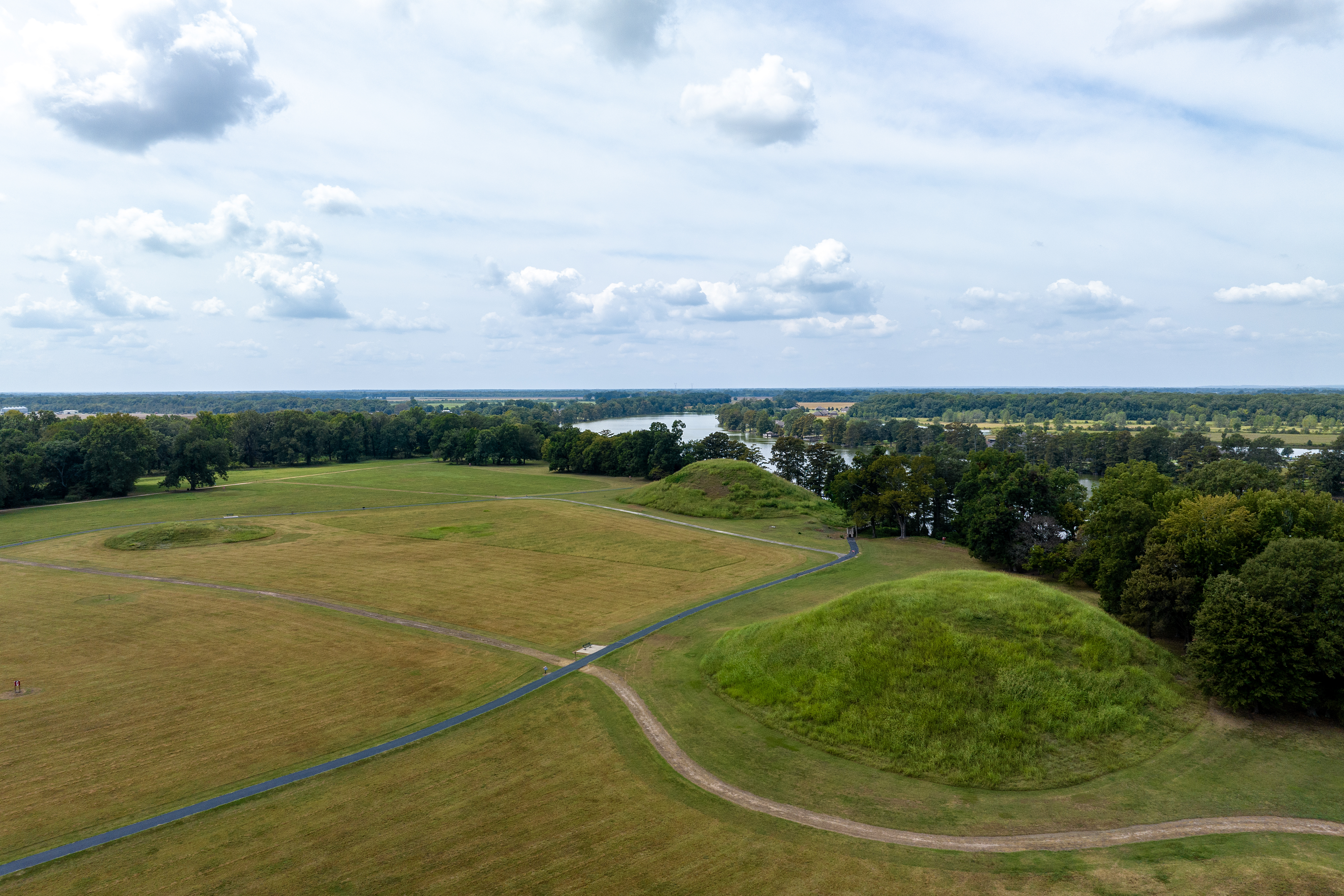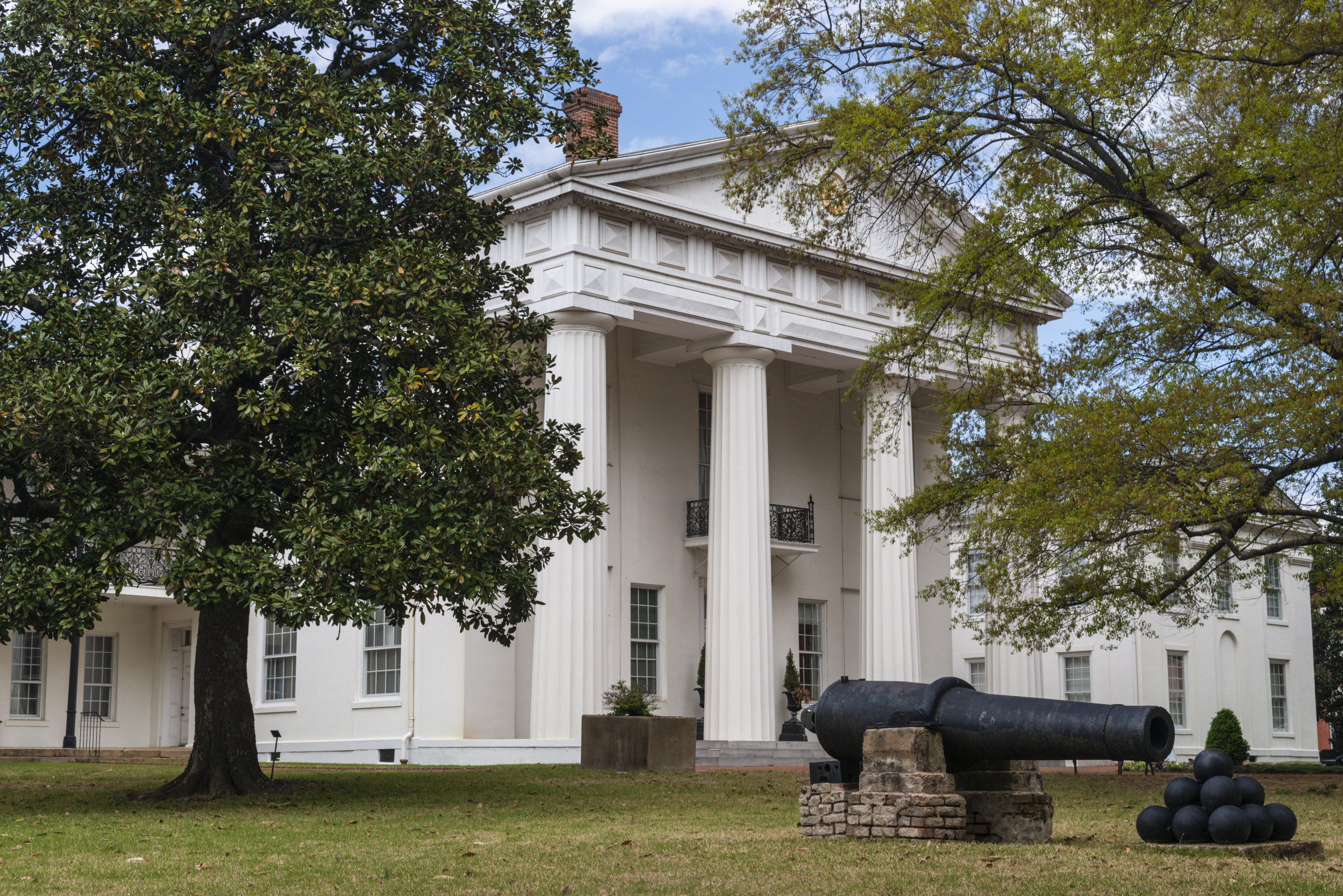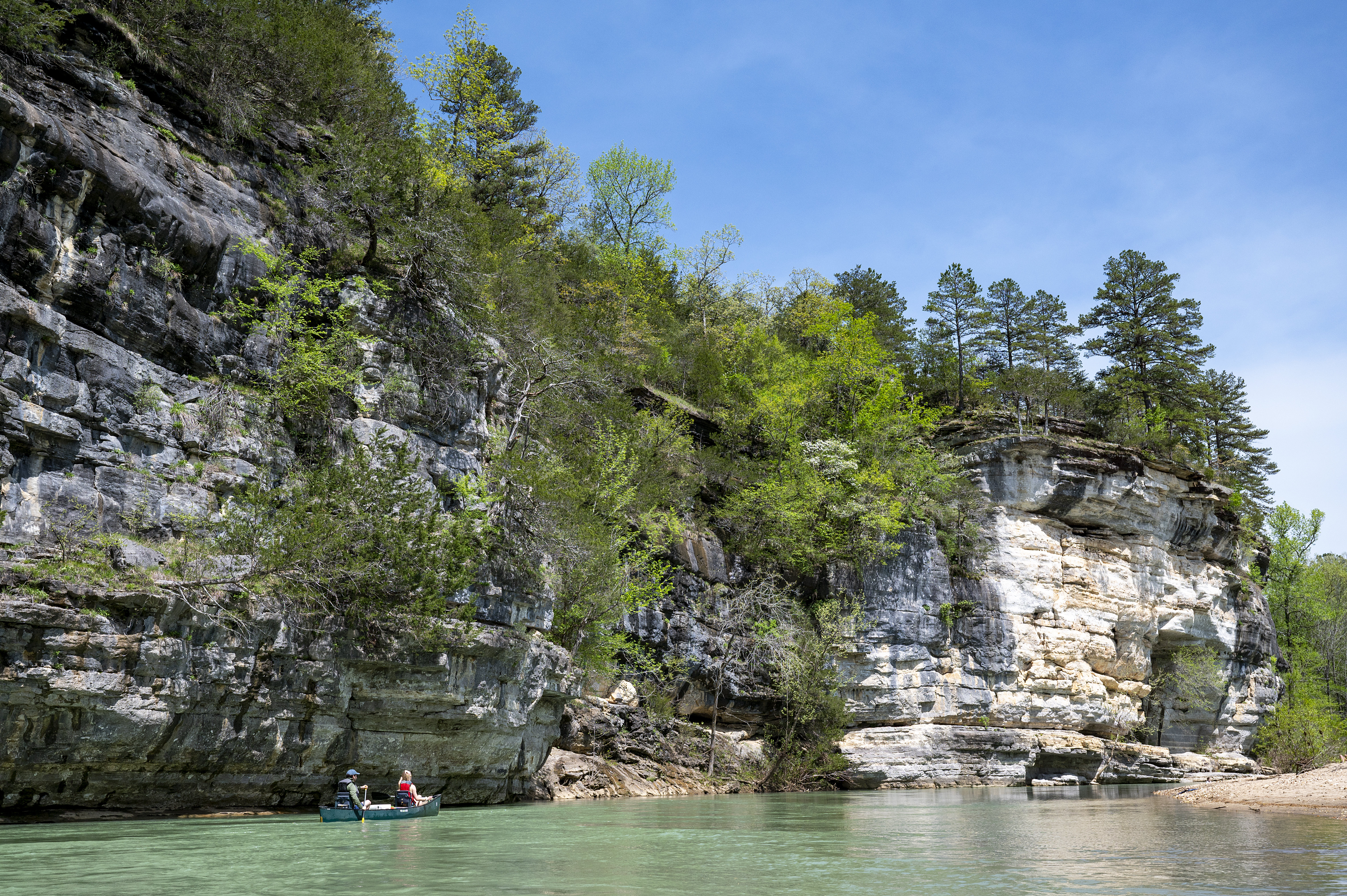
Arkansas History Timeline
 700 – 1100 AD Plum Bayou Mounds area inhabited. Plum Bayou State Park.
700 – 1100 AD Plum Bayou Mounds area inhabited. Plum Bayou State Park.
1000 AD or CE – evidence of early Arkansas settlers around Parkin, now Parkin Archeological State Park.
1541 - Hernandez DeSoto visited the site that is now Parkin Archeological State Park.
1400 – 1650 – Hampson Archeological State Park – Indigenous population settled in this area.
1686 - Arkansas Post is established by French Explorer Henri de Tonti as the first settlement in the area that will later become the state of Arkansas. Arkansas Post State Park.
1731- French: Louisiana, including present-day Arkansas, becomes a royal colony of France.
1783 – The only Revolutionary War battle to be fought in Arkansas was the Battle of Arkansas Post, also known as the Colbert Raid and the Battle of Fort Carlos. It was an unsuccessful attempt by the British to capture Fort Carlos III and the village at Arkansas Post.
1803 – United States acquires the Louisiana Purchase on April 30, 1803, which includes present day Arkansas.
1815 – Louisiana Purchase Land Survey base near Brinkley Arkansas established November 10, 1815, by the surveyors of the Louisiana Purchase. This is where Louisiana Purchase State Park is located.
1817 – June 27th, first Post Office in what would become the state of Arkansas. Davidsonville Arkansas, located in Davidsonville State Park.
1819 – The Missouri Territory, that originally included Arkansas, applied to become a state. Their application did not include the southern five counties that were sparsely settled. The inhabitants of this area petitioned congress and on March 2, 1819, Congress approved of the creation of the Arkansas Territory, with Arkansas Post being the seat of government.
1820 – The first territorial General Assembly for Arkansas met in February at Arkansas Post. They met again in the fall and chose Little Rock as the new seat of government beginning in 1821.
1820 - First Federal Land Office in Arkansas, at Davidsonville. Davidsonville State Park.
1822 – First Courthouse in Arkansas, Davidsonville.
1836 – Arkansas becomes a state. June 15, 1836.

1836 – The first session of the Arkansas General Assembly met in the original Old State House Museum, House of Representatives chamber in 1836 while construction continued.
1838 – Trail of tears through Arkansas taking tribes from eastern states to Indian territory.
1858 – The first railroad tracks were laid from West Memphis to Madison in St. Francis County. This became part of the Memphis & Little Rock Railroad, the first to function in the state.
1861 – Arkansas secedes from the union, the ninth state to do so.
1872—Arkansas elects its first (and, to date, only) African American statewide officer, Superintendent of Public Instruction, Joseph Carter Corbin.
1874 – Arkansas adopts its fourth and current state constitution.
1906 — Pike County: Diamonds are discovered in Pike County, the first such deposit to be found in the United States.
1915 — The Arkansas General Assembly passed the Newberry Act to ban the manufacture and sale of alcohol across Arkansas. This was followed in 1916 by a law that made it illegal to import alcohol into Arkansas. The state was several years ahead of the nation in prohibition. The 18th Amendment made prohibition a national law which was ratified in 1919 and took effect in 1920.
1919 – Arkansas became the 12th state to ratify the 19th amendment giving women the right to vote.
1927 – Much of Arkansas is devastated by the Great Flood of 1927, which placed much of Arkansas underwater in the spring and summer. It is still the costliest flood to hit the state. It prompted the Army Corps of Engineers to build locks and dams on Arkansas rivers and the creation of many large dams and lakes across the state.
1932 – Hattie Caraway of Arkansas is first female elected to serve in the United States Senate.
1941 - The Arkansas Territorial Capitol Restoration, now known as the Historic Arkansas Museum, opened to the public in July 1941.
1942 — Two internment camps opened in the Arkansas Delta to hold 1 hold 16,000 Japanese Americans who were incarcerated during World War II. One was in Rohwer in Desha County and the other at Jerome in parts of Chicot and Drew Counties. The camps closed in1945.
1947 –Legislation was passed that turned the Old State House, Arkansas’ former capitol into a museum of Arkansas history.
1957 — Central High School was desegregated when nine Black students enrolled. Governor Orval Faubus used the Arkansas National Guard to block the students’ entry. President Dwight D. Eisenhower responded by sending federal troops to allow the students to attend the school. The crisis continued in 1958 when Little Rock schools were closed for the year while the fight over desegregation continued. A national historic site still commemorates this step in desegregation.
1958 – Elvis Presly gets his famous U.S. Army haircut at Fort Chaffee near Fort Smith.
1962 – Sam Walton opened his first Walmart Discount City in Rogers, Arkansas. The company would go on to become the nation’s largest retailer by the 1990s and was declared the largest international company in 2002. Walmart is still ranked in the top 20 of international companies.
1964 – The University of Arkansas football team, under Coach Frank Broyles, declared national champions after the team went 11-0 for the season and defeated Nebraska in the Cotton Bowl.

1972 – The Buffalo River is made the nation’s first National River, giving it protected status and placing it under the conservation of the National Park Service.
1989 – Arkansan Jerry Jones purchases the Dallas Cowboys.
1992 – Former Arkansas governor Bill Clinton is elected the 42nd President of the United States. He served two terms as the nation’s president. Clinton is the only U.S. president from the state of Arkansas.
1994 -- Chancery Court Judge Annabelle Imber ruled in favor of the Lake View School District and declared Arkansas’s funding system for education to be unconstitutional. She allowed the state two years to come into compliance with the ruling.
1994 – The University of Arkansas Men’s Basketball Team wins the national championship, under coach Nolan Richardson, after defeating Duke to claim the NCAA Division I title.
1996 – Amendment 75 is added to the State Constitution that established the 1/8th cent Conservation Sales Tax that distributes 45% to Arkansas Divisions of Parks and Tourism, 45% to Arkansas Game & Fish Commission, 9% to Arkansas Division of Heritage and 1% to Keep Arkansas Beautiful.
1997 — Little Rock: Ceremonies at Little Rock Central High School mark the fortieth anniversary of the desegregation crisis.
1998 – Congress established Little Rock Central High School National Historic Site. The National Historic Site is administered in partnership with the National Park Service, Little Rock Public Schools, the City of Little Rock and others.
2002 — Bentonville: Bentonville-based Wal-Mart is identified as the world’s largest corporation.

2004 —William J. Clinton Presidential Center and Park opens.
2006 – The Pulaski County Pedestrian and Bicycle Bridget, named the Big Dam Bridge, opens to the public. At the time, it was the world’s longest bridge purpose built for pedestrians/bicycles.
2009 — The Arkansas Scholarship Lottery goes into effect.
2012 – Arkansas Republicans won the majority of seats in both the House and Senate for the first time since reconstruction.
2018 – Establishment of the Monument Trails at Arkansas State Parks, a private-public partnership for ADPHT
2022—The first female Governor of Arkansas is elected, Sarah Huckabee Sanders.